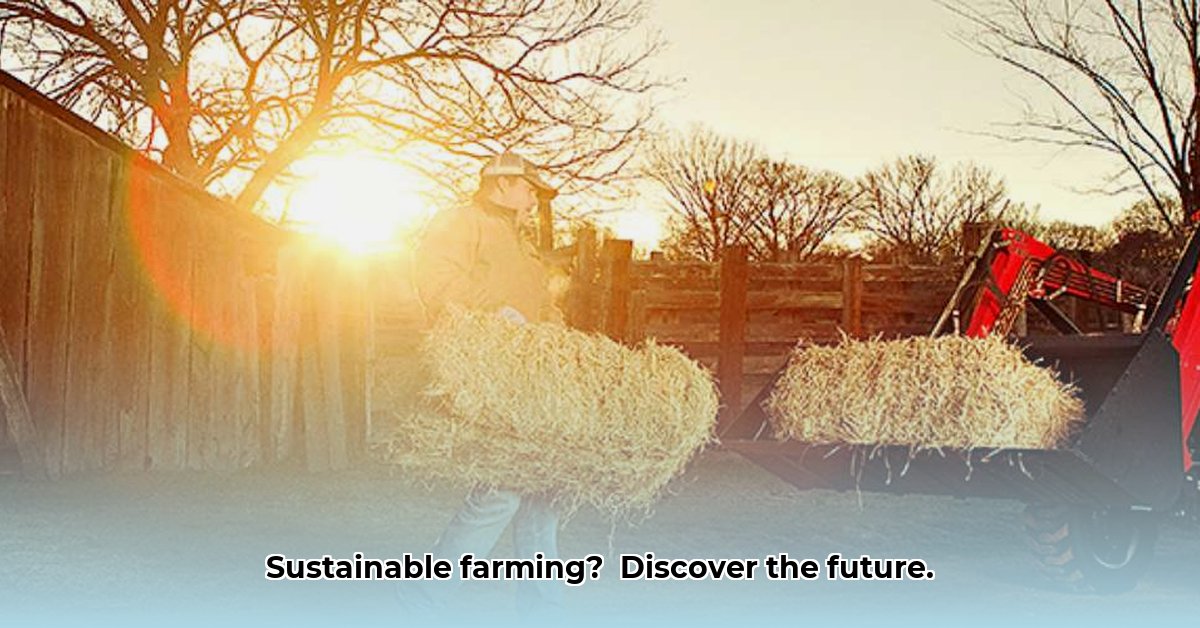
Capital Tractor's Role in Montgomery's Agricultural Landscape
Capital Tractor, a significant agricultural equipment supplier in Montgomery, Alabama, occupies a pivotal position within the region's farming community. This article explores Capital Tractor's potential contribution to sustainable agricultural practices in the Montgomery area. For more information on agricultural suppliers in Montgomery, check out this useful resource. However, a comprehensive assessment is hampered by a lack of readily available data. We will discuss potential connections to sustainability, acknowledging the need for further research to draw definitive conclusions. This analysis examines Capital Tractor's equipment portfolio, customer base, the local agricultural context, and potential future strategies for promoting sustainable farming practices.
Capital Tractor's Equipment Portfolio and Sustainability Implications
Capital Tractor offers a diverse range of agricultural machinery from various manufacturers. Many of these brands are increasingly focused on developing sustainable technologies. These include fuel-efficient tractors, precision planting tools minimizing seed waste, and implements designed for reduced tillage farming—a method known to improve soil health and reduce erosion. However, without quantifiable data on sales figures for these specific sustainable technologies, it is impossible to definitively assess Capital Tractor's direct impact on sustainable agriculture. Further research is crucial to understand which equipment types are most prevalent in their sales and the actual degree of adoption of sustainability-focused machinery.
Capital Tractor's Customer Base and Sustainable Practices Adoption
Determining the extent to which Capital Tractor's customers employ sustainable farming methods requires more robust data. Anecdotal evidence suggests some farmers utilize environmentally friendly practices. However, to quantify the adoption rate of sustainable agriculture amongst Capital Tractor's clientele, further investigation is needed. Surveys, case studies, and interviews with farmers would provide valuable insights into their usage of sustainable techniques and the role Capital Tractor's equipment plays in these practices. Without this concrete data, generalizations about the sustainability of their customer base remain speculative. How can we assess the true impact without hard numbers on the adoption rate of reduced-tillage or precision agriculture techniques among Capital Tractor's customers?
Opportunities and Challenges for Sustainable Agriculture in the Montgomery Area
The Montgomery area's agricultural landscape presents both opportunities and challenges for sustainable farming. Soil type, water availability, prevalent crop varieties, and government policies all influence the feasibility and adoption of sustainable practices. Understanding these local conditions is essential for assessing the effectiveness of any sustainability initiatives. For example, the availability of government subsidies for water-efficient irrigation systems or the prevalence of soil erosion issues will impact the implementation of sustainable farming technologies. What specific local factors are influencing the sustainability of farming practices in the region?
Capital Tractor's Future Role in Sustainable Agriculture
Capital Tractor has several avenues to enhance its contribution to sustainable agriculture. Strengthening collaboration with equipment manufacturers to offer a wider range of eco-friendly technologies is a key step. Providing farmer education through workshops or training programs on sustainable practices would also be valuable. Financial incentives for farmers adopting sustainable equipment would further encourage its adoption. Capital Tractor's future role should extend beyond mere equipment sales; it should embrace a partnership approach in fostering a thriving and sustainable farming community. What proactive steps can Capital Tractor take to become a more significant player in promoting sustainable practices within its community?
Conclusion: The Need for Further Research
This analysis highlights the limitations imposed by a dearth of comprehensive data. To reach a conclusive assessment of Capital Tractor's contribution to sustainable agriculture in Montgomery, substantial research is necessary. This includes collecting sales data on specific sustainable equipment, conducting farmer surveys, and developing comprehensive case studies of sustainable farming practices. By engaging with Capital Tractor directly, accessing industry reports, and pursuing independent data collection, the gaps in our understanding can be closed, painting a more accurate and detailed picture of their contribution to sustainable agriculture in the Montgomery area.